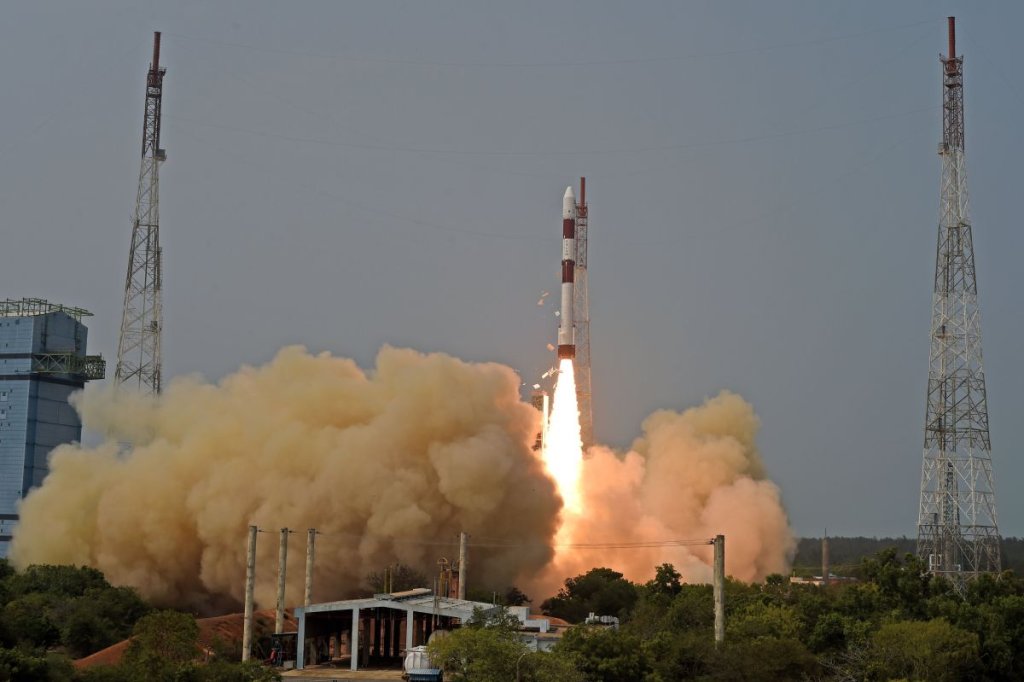An Indian rocket launched two Singaporean satellites to low Earth orbit early Saturday morning (April 22).
A Polar Satellite Launch Vehicle (PSLV) lifted off from India’s Satish Dhawan Space Centre on Saturday at 4:49 a.m. EDT (0849 GMT; 2:19 p.m. India Standard Time), carrying an Earth-observation satellite and a communications tech-demonstrating craft aloft.
About 20 minutes later, the rocket deployed the two spacecraft as planned.
“In a textbook launch, the vehicle placed TeLEOS-2 and LUMELITE-4 satellites precisely into their intended 586 km [364 miles] circular orbit,” officials with the Indian Space Research Organisation (ISRO) said via Twitter (opens in new tab) on Saturday.
Related: Facts and information about ISRO, the Indian Space Research Organisation
PSLV roaring into the sky 🚀 pic.twitter.com/baSVrpoR7MApril 22, 2023
The main payload for the 145-foot-tall (44 meters) PSLV on Saturday was TeLEOS-2, an Earth-observation satellite that will collect imagery data for the government of Singapore.
The spacecraft will study our planet using synthetic aperture radar, which can peer through clouds and operate at night as well as during the day. The 1,630-pound (740 kilograms) satellite is capable of resolving features on the ground as small as 3.3 feet (1 m), ISRO wrote in a prelaunch description of Saturday’s mission (opens in new tab).
LUMELITE-4 is a 35-pound (16 kg) communications demonstrator co-developed by the National University of Singapore and the nation’s Agency for Science, Technology and Research.
LUMELITE-4 aims to demonstrate a new data-exchange system, which is designed to “augment Singapore’s e-navigation maritime safety and benefit the global shipping community,” ISRO officials wrote.
In addition, the PSLV’s fourth stage was modified ahead of Saturday’s flight to serve as an orbiting research platform.
Seven non-deployable experimental payloads were integrated into this “PSLV Orbital Experimental Module,” or POEM. These instruments — from ISRO, the Indian Institute of Astrophysics and the Indian companies Bellatrix and Dhruva Space — are expected to operate aboard POEM for about a month in orbit, according to ISRO.
Saturday marked the third time a payload-packed POEM has flown on a PSLV mission, ISRO officials said.
Editor’s note: This story was updated at 9:10 a.m. ET on April 22 with news of successful launch and satellite deployment.
Mike Wall is the author of “Out There (opens in new tab)” (Grand Central Publishing, 2018; illustrated by Karl Tate), a book about the search for alien life. Follow him on Twitter @michaeldwall (opens in new tab). Follow us on Twitter @Spacedotcom (opens in new tab) or on Facebook (opens in new tab).

